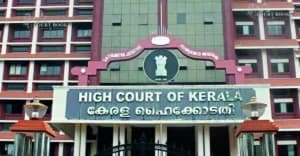In a significant ruling on April 22, the Supreme Court of India firmly rejected a petition that sought to give High Courts the same powers as the Supreme Court under Article 142 of the Constitution. The Court called the plea “completely misconceived.”
“Power conferred under Article 142 of the Constitution is only on this Court and not the High Courts,”
— Supreme Court
The bench of Justice Abhay S. Oka and Justice Ujjal Bhuyan dismissed the petition filed by Pankaj K Phadnis, who appeared in person. The petitioner argued that High Courts should also have the authority to pass any order necessary to ensure complete justice, similar to the Supreme Court under Article 142.
Read Also:- Supreme Court: Land Value Under RFCTLARR Act Must Be Based On Section 11 Notification Date
However, Justice Oka explained that such a request cannot be accepted without a constitutional amendment, something only Parliament can do. He clarified:
“Your prayer is that we should confer on High Court the power of this court under Article 142. Can that be done unless Constitution is amended? We can strike down portion of the Constitution but we can't amend the Constitution.”
— Justice Abhay S. Oka
The petitioner also suggested that a Constitution Bench could interpret the law or that Article 226 could be treated like Article 142. Both arguments were rejected by the Court. Justice Oka responded that:
“A Constitution Bench cannot amend the Constitution… You go to the Parliament. We can't amend the Constitution.”
— Justice Abhay S. Oka
Read Also:- Tamil Nadu Governor Verdict Doesn't Apply to Kerala's Bill Assent Delay: AG Tells Supreme Court
The Court also declined to appoint an amicus curiae and refused to direct the High Court to hear the petitioner’s writ petition under Article 142. The judges were clear that High Courts do not have the authority to act under Article 142 while handling cases under Article 226.
“There is absolutely no merit in the prayer made by the petitioner. Therefore, there is no question of appointing amicus curiae or referring the case to the Constitution Bench.”
— Supreme Court
Case no. – Abhinav Bharat Congress v. Union of India and Ors.
Case Title – W.P.(C) No. 395/2025















